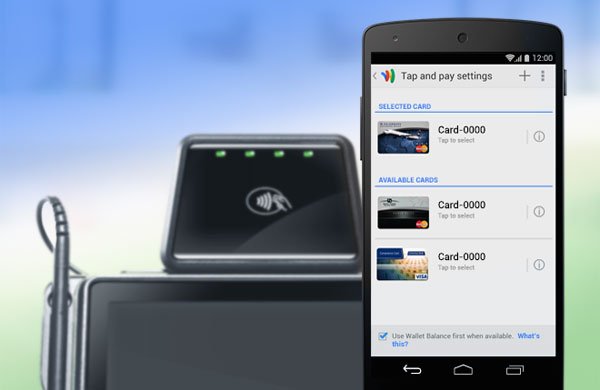Google recently announced a two-pronged thrust to beef up its efforts in the mobile wallet arena.
It has struck agreements with Verizon Wireless, AT&T Mobility and T-Mobile to pre-install the Google Wallet app, including its tap-and-pay functionality, on Android phones the carriers will offer later this year in the United States.
The devices must run KitKat or later versions of the Android operating system.
Google also purchased the technology and IP of Softcard, a mobile wallet launched in 2010 jointly by the three carriers. For now, consumers can continue to use their Softcard app, but reports suggest Google may deep-six the Softcard brand.
The moves come as Apple Pay gains a footing in the market and as Samsung, which purchased Loop Pay last week, presumably has begun developing its own digital wallet.
It has struck agreements with Verizon Wireless, AT&T Mobility and T-Mobile to preinstall the Google Wallet app, including its tap-and-pay functionality, on Android phones the carriers will offer later this year in the United States.The devices must run KitKat or later versions of the Android operating system.
Google also purchased the technology and IP of Softcard, a mobile wallet launched in 2010 jointly by the three carriers. For now, consumers can continue to use their Softcard app, but reports suggest Google may deep-six the Softcard brand.
The moves come as Apple Pay gains a footing in the market and as Samsung, which purchased Loop Pay last week, presumably has begun developing its own digital wallet.
The Lame Leading the Blind?
Softcard was announced in 2010 by a consortium then known as “ISIS” — it recently changed its name to “Softcard” — while Google Wallet emerged in 2011. Neither has gained much acceptance in the market.
Apple Pay, on the other hand, made an impressive debut last year.
Walgreens’ mobile payments doubled following Apple Pay’s launch. By mid-January, it accounted for more than half of McDonald’s mobile phone transactions and about 2 percent of sales at Whole Foods Market stores.
Google Wallet currently claims 4 percent of the mobile payments market.
United We Stand?
The addition of the Softcard technology could give Google Wallet a much-needed burst of energy.
“Consumers in this country carry 1.2 billion debit and credit cards and 330 million mobile phones,” noted Jason Oxman, CEO of the Electronic Transactions Association.
“Combining those two couldn’t make any more perfect sense,” he told the E-Commerce Times.
Google Wallet’s growth has been slow in part because the major carriers, except for Sprint, have not enabled it to work on their networks.
Google attempted to resolve that problem by making Wallet compatible with MasterCard’s PayPass system.
Still, that was only a workaround, and getting carriers on board could lead to more widespread acceptance of Google Wallet.
Further, this could be a case of a rising tide lifting all boats.
“With ETA member companies like Samsung with Loop Pay, Google with Softcard, and Apple — and so many more of the world’s great technology companies — deploying mobile payments technologies, this exciting new product category is poised for massive success,” said the ETA’s Oxman.
Pokey Progress
Mobile payments have been slow to take off in the U.S.
Global mobile payments totaled US$235.4 billion in 2014, but transactions in North America amounted to just $37 billion, according to Statista.Credit cards accounted for almost 54 percent of mobile payments, while PayPal accounted for another 44 percent.U.S. mobile payment industry players have been trying to get off the ground for years.
“This is not the first attempt,” said technology industry analyst Jeff Kagan.Now that the big players — Apple, Samsung and now Google — are getting involved, “things are really starting to gel,” he told the E-Commerce Times. “2015 might be the year e-pay really starts to grow.”
No Clear Winner Yet
Apple “will likely be successful because it’s Apple and it’s got such a big following,” Kagan surmised, “but then you’ve got Samsung … and now Google. They all stand a great chance to be successful, and there’s room in the market.”
Don’t expect rapid growth any time soon, though.
“This is the first half of the first inning of the new game,” Kagan said.
That’s a good thing, he added, because “you have time to work out what works and what doesn’t, and have time to tweak the technology to make it better.”
Article Source: http://www.technewsworld.com/story/81749.html



